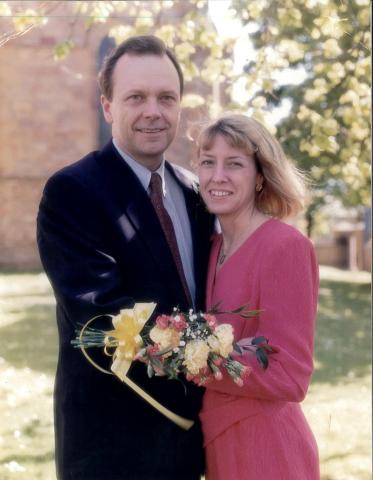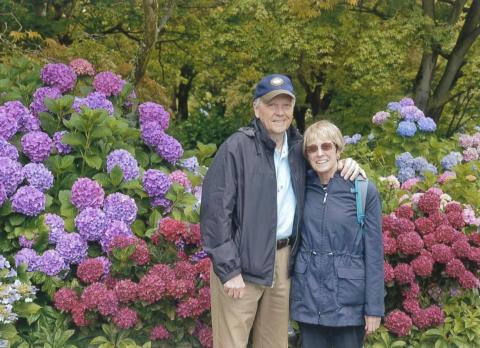Read time: 3 minutes
Tom Moser wrote the words below based on years of experience caring for his wife, Mary Lynn, who had lung and breast cancer and has since passed away. Prior to her passing, Mary Lynn authored a separate blog encouraging readers to be both mentees and mentors, as well as faith-focused “thrivers.”
I had the honor and privilege of being the caregiver for my wife Mary Lynn through her breast and lung cancer journeys. We were blessed with fourteen years of many successful treatments and excellent quality of life for Mary Lynn.
Sadly, the final year was one of significant cancer progression, very challenging decisions, and deterioration in Mary Lynn’s quality of life.
Much has been written about caregiving. Let me share a few thoughts on a very important dimension that’s not written about as much, the caregiver’s role in treatment decision processes.

- Offer to take on the primary responsibility for research and coordination with the care teams, including preparing and asking questions for appointments, while always respecting that your loved one is entitled to make the final decisions. This can permit her/him to focus their time and energy more on living their lives in the most quality ways possible.
- Identify the best institutions and doctors for your loved one’s particular cancer. Do your own research, ask others, study bios, etc. Don’t just go where “it’s convenient,” and avoid getting “assigned” to a doctor. Know that teaching institutions and universities also have significant funding for cancer research and are preferred places. And be aware of today’s telehealth restrictions; if you go out of state, you may not be able to have routine follow-up consults without going back each time in person.
- If your research says there are options for treatment, e.g., radiation, chemo, or surgery, then select doctors for each area and see all of them. They will each have different perspectives.
- Once you start, if you and your loved one do not feel comfortable with a doctor (for example, he/she doesn’t welcome questions, makes it challenging to contact them between appointments, or relies on radiologist reports without reviewing your scans in detail and being able to show and explain them to you on a computer screen), then request a change, likely through the institution’s patient advocacy process. If the doctor’s PA or primary nurse is a poor listener/communicator, and/or takes too much of a decision role with you “by playing doctor,” that is also a good reason to change.
- If your treatment options are “close calls,” learn whether the institution has “real” multidisciplinary case discussion processes. If so, learn what the various views are for your case. Consider second opinions at other institutions as well.
- Do lots of your own research along the way, through the internet, conferences, webinars, organizations such as LUNGevity, and other sources. Bring good questions into your appointments. You’ll never know more than the doctors, but this elevates the quality of discussions and helps you understand their terminology and advice.
Here are just a few additional thoughts for caregivers...
When a curative path is unlikely, put a lot of thought and prayer into deciding how to balance aggressive treatments with quality-of-life risks. There’s always going to be “something else to try,” but at what cost to your loved one’s quality of life?

The caregiver role is a “job.” It’s time consuming and challenging. Be sure to spend equal time in helping your loved one with quality of life and “smelling the roses.” Create new memories and experiences together.
There’s a natural tendency to avoid bringing up topics of “bucket lists,” advance directives, funeral plans, and reminiscing about the past, as you may feel it conveys a lack of hope. But if the cancer is likely not curable, don’t wait too long so that your loved one still has high cognitive capability and energy for them.
May God bless all caregivers with wisdom and strength in this challenging life role.
Make sure to read Mary Lynn's blog which encourages people living with lung cancer to be both mentees and mentors, as well as faith-focused “thrivers.”

